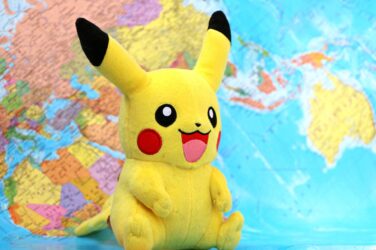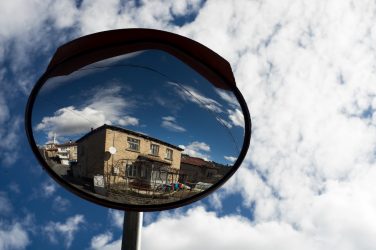For many centuries, Moldova was an alternating possession of Greater Romania, Russia and the Ottoman Empire – which made Moldovans feel that they and their land had been underestimated. We do not have Dracula’s Castle and we’ve got no direct access to the Black Sea. But the village of Holercani is proof that we do have our own history.

From my earliest childhood, I can’t remember a year when we did not spend our summer holidays in Holercani. There were many reasons for that: first, my father wanted to go fishing there, and second, all the other members of the family wanted to eat that fish.
But seriously, my parents liked the little village of Holercani, located on the bank of the river Nistru, as the two little hotels at a reasonable price haven’t been the most popular destination among the locals. In the 1990s, Moldovans had just started to discover the Golden Sands of Bulgaria and Romanian resorts like Mamaia. Even today I haven’t been there: my only passion was Holercani.
My parents always told me: “We’re going to summon up fresh energy and forget about the city noise for two weeks; Holercani is perfect for this! You and your brother will enjoy it.” A beach with a little boating station, five piers, an enormous forest, a volleyball pitch and a badminton court – these were the places which delighted and surprised me as a child. Now I find it really difficult to recall how many useful things I’ve learnt at Holercani during all those years. There I found out that grass snakes aren’t venomous, I got used to shaking nuts down from the trees gathering Cornelian cherries (my mother makes a sour sweet compote out of them). I understood that one gets a tan also while swimming in the river (not only on the shore of Golden Sands) and I tried to make baked potatoes on an open fire. I’ve hand-fed squirrels and caught lizards. My father taught me how to dive and my brother showed me how the stones skip on the calm water.

It seems my childhood summers were full of adventures: I remember playing hide-and-seek with other children in a deserted high-rise house with broken windows and torn wall-paper. I never wondered what happened there, it was a mystery I never questioned. I needed nothing else and was completely satisfied with the wild surroundings. Already as a teenager I faced some problems, namely no connection with civilisation. Lack of television, telephone and internet made me feel a bit abandoned and forgotten. The lack of icq chats and the two-week separation from friends had their impact. The little radio could comfort me just for a week, during the second one I was already bored and wanted to go back to dusty, but lively Chisinau.
Later, when terms like “kolkhoz” and “communism” started making sense to me, I realised the things I could never understand before. During the Soviet times the hotels belonged to the Council of Ministers of the Union of Soviet Socialist Republics and were closed for ordinary visitors for about fifty years. Holercani served as a recreation centre just for the high officials, including Leonid Brezhnev. Meanwhile the ruling power has changed and on 2 July 1990 a decree by the new government came into force urging Moldovans to use the hotes. In this way, the common population got access to a nice, well-groomed place in their own country. Some people like my parents were glad to get such a possibility, meanwhile others preferred to enjoy scuba diving in Antalya…

Still, the main problem became obvious after several years – the new authority, in contrast to the Soviet, one didn’t promote communal ideas, and therefore the concepts of collective responsibility, collective ownership and even collective recreation weren’t supported. Holercani started to fade away. Slowly, but steadily. Fewer people were coming there; less money was invested in the place. The hotels became shabby, the paint peeled off and the damp settled in.
The symbol of Holercani’s stagnation became the high-rise building supposed to become another hotel which was bombed during the War of Transnistria (March 1992 – July 1992). The façade of the new building was damaged by shells thrown from the other bank, the interior was gutted. Every summer I used to pass by this destroyed house, having no idea about the internal conflict with the unrecognised breakaway territory called the Pridnestrovian Moldavian Republic.
Today, when both childhood and adolescence are gone, I look at Holercani from a different perspective. It is still my family’s favourite escape from the city and my father still cooks the tastiest fish soup. But now I see Holercani not only as a beautiful childhood memory, but also as a museum where time stands still, where one can enjoy the silence, can see the frozen history of the place, but, unfortunately, can expect no future.





